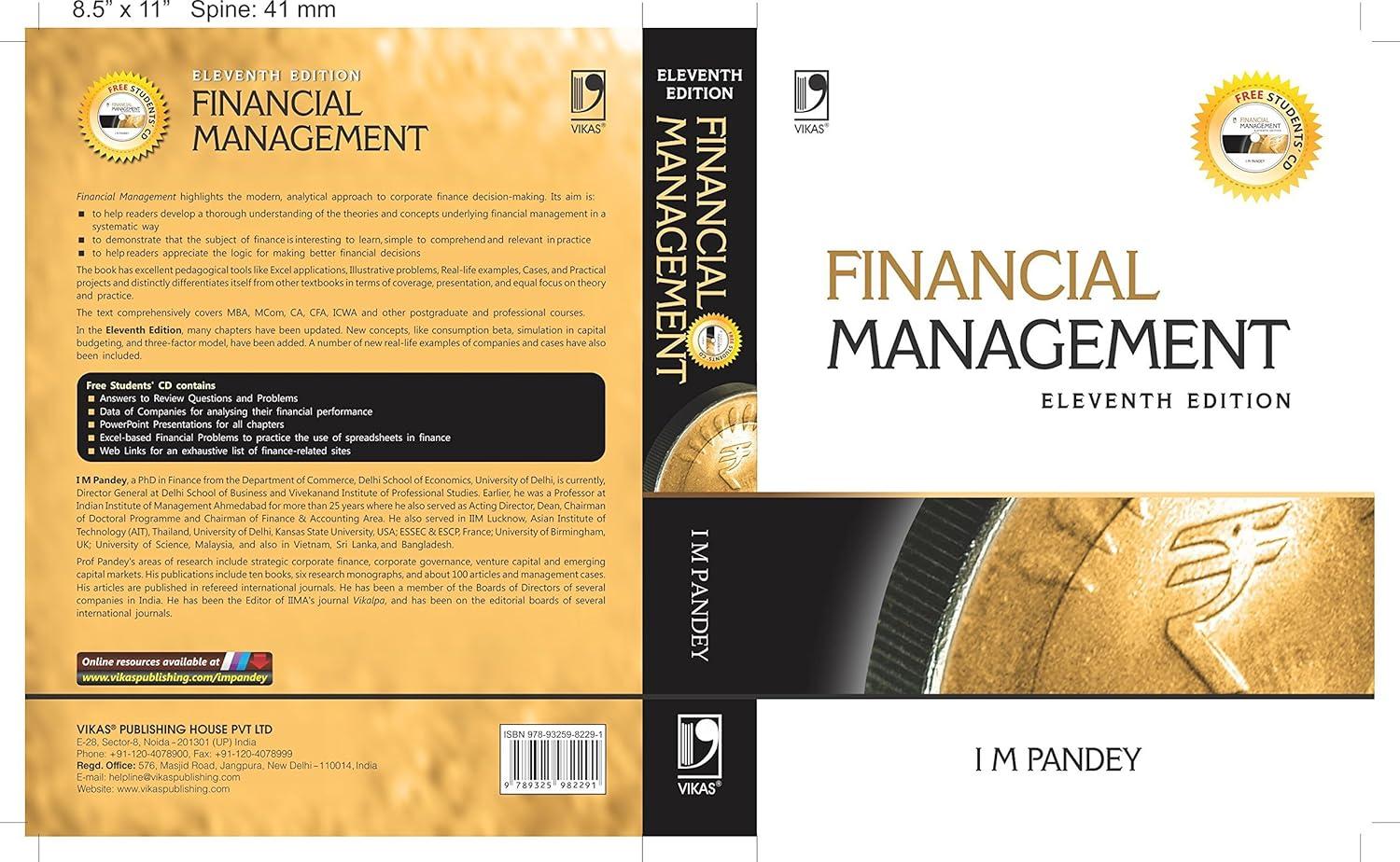Question
A firms CEO has set the companys target capital structure as 40% long-term debt, 10% preferred stock, and 50% common stock equity. The firm's corporate
A firms CEO has set the companys target capital structure as 40% long-term debt, 10% preferred stock, and 50% common stock equity. The firm's corporate tax rate is 25 percent. To finance its planned capital expenditures, the firm is looking at the following sources of capital:
- Debt: The firm can sell 30-year, $1,000 par value bonds that pay a 6% coupon, with interest paid semi-annually, for $970. To issue the bond, the firm will have to pay $20 in flotation costs per bond.
- Preferred Stock: The firm can sell a 5% preferred stock at a par value of $100 per share. The cost of issuing and selling the preferred stock is $10 per share.
- Common Stock: The firm's common stock is currently selling for $50 per share. This year, the firm paid $3 in dividends per share. The firms dividends have been growing at a constant rate of 1.5% per year for the last ten years and are expected to sustain this growth rate thereafter.
- New common stock issue: If the firm decides to issue new common stock, its underwriter indicated that the new stocks would sell for $42 per share. Further, the firm will have to pay $2 per share in flotation costs. Dividend and dividend growth rate are expected to remain the same.
Find the firms after-tax cost of debt financing
4.79%
Find the firms cost of preferred stock financing
5.56%
Find the firms cost of financing using the retained earnings
7.59%
Find the firms cost of financing using a new common stock issue
9.11%
Answer The ONES BELOW
1. Find the firms weighted average cost of capital, if the firm uses debt, preferred stock and retaining earnings to finance its investments
2. Find the firms weighted average cost of capital, if the firm uses debt, preferred stock, retaining earnings, and the new stock issue to finance its investments
3. Given your findings in part (e) and (f), explain what minimum rates of return the firm must require from its long-term investments
Step by Step Solution
There are 3 Steps involved in it
Step: 1

Get Instant Access to Expert-Tailored Solutions
See step-by-step solutions with expert insights and AI powered tools for academic success
Step: 2

Step: 3

Ace Your Homework with AI
Get the answers you need in no time with our AI-driven, step-by-step assistance
Get Started


